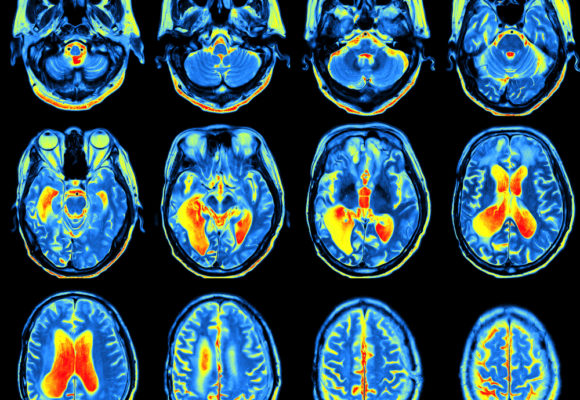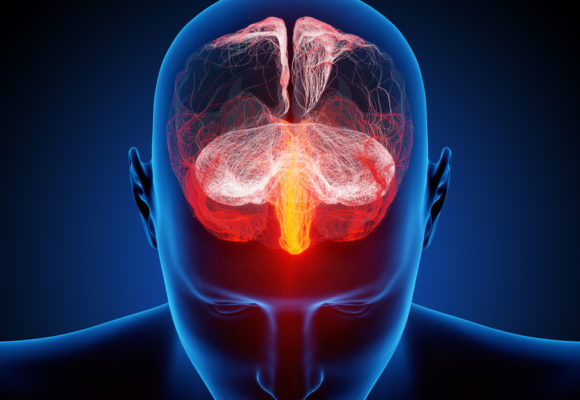This post was originally published on this site The first patient has been dosed in Alkahest‘s Phase 2 clinical trial testing its investigational therapy, GRF6019, in individuals with severe Alzheimer’s disease. The study (NCT03765762) was designed to assess the safety and tolerability of the experimental treatment, as well as its impact on patients’ mental state and…
About Alzheimer’s Disease
Walking into a room and forgetting why you went into the room is normal. Walking into a room and forgetting what room you are in is not normal. Alzheimer’s disease is the most common form of dementia and affects one in ten people over the age of 65. Unfortunately, the exact cause of Alzheimer’s disease is not fully understood however leading scientific experts in the field attribute the illness to the irreversible and progressive generalized degeneration of the brain. Alzheimer’s disease goes well beyond the forgetfulness that may accompany aging, and typically first signs include difficulty remembering current information or performing new tasks. Ongoing hallmark symptoms include impaired memory function, difficulty performing everyday tasks, and neurobehavioral abnormalities. Currently, there is no known cure for Alzheimer’s disease, and multi-disciplinary treatment focuses on symptom management and limiting progression.
Conditions
Alzheimer’s News
Biogen and Eisai Halt Phase 3 Trials Testing Aducanumab for Early Alzheimer’s
This post was originally published on this site Two Phase 3 clinical trials testing the investigational therapy aducanumab in patients with early Alzheimer’s disease have been discontinued. Biogen and Eisai came to this decision after an analysis from an independent data monitoring committee indicated that the global ENGAGE (NCT02477800) and EMERGE (NCT02484547) studies of aducanumab…
Combination of 2 Dietary Compounds May Have Benefits for Alzheimer’s Patients, Mouse Study Suggests
This post was originally published on this site Combining two dietary compounds found in green tea and carrots reversed cognitive deficits, lowered the accumulation of toxic amyloid beta, and reduced brain inflammation and oxidative damage in a mouse model of Alzheimer’s disease, a study reports. The study, “Combined treatment with the phenolics (−)-epigallocatechin-3-gallate and ferulic acid…
Dosing Starts in Phase 2 trial of Bryostatin-1 for Alzheimer’s
This post was originally published on this site Neurotrope Bioscience announced that dosing of patients has started in its Phase 2 clinical trial to further evaluate Bryostatin-1, the company’s investigational candidate for the treatment of moderate to severe Alzheimer’s disease. “Completion of enrollment in our confirmatory Phase 2 trial is an important step toward understanding…
Brains of People with Sleep Apnea Show Increased Tau Protein Aggregates
This post was originally published on this site People with sleep apnea show increased accumulation of tau protein aggregates — a hallmark of Alzheimer’s disease — in brain regions linked to memory and spatial navigation, a study finds. The results will be presented during the 71st Annual Meeting of the American Academy of Neurology, May…
Alzheimer’s Association and Women’s Alzheimer’s Movement Launch Campaign to Highlight Disease’s Impact on Women
This post was originally published on this site Because a disproportionate number of Alzheimer’s disease patients and caregivers are women, the Alzheimer’s Association and The Women’s Alzheimer’s Movement (WAM) are leading a global movement to do something about it. Announced March 8 on International Women’s Day, efforts include a South by Southwest (SXSW) Conference &…
Manipulating Brain Cells called Astrocytes May Ease Alzheimer’s Symptoms, Study Finds
This post was originally published on this site Manipulating astrocytes — a type of cell in the brain — to deliver a protein that favors the survival of neurons can rescue cognitive function, including memory, in a mouse model of Alzheimer’s disease, a study reports. The study, “Conditional BDNF delivery from astrocytes rescues memory deficits,…
Hip Fracture in Older People Without Dementia May Be Sign of Undiagnosed Alzheimer’s
This post was originally published on this site Abnormal levels of amyloid-beta and tau protein — two hallmarks of Alzheimer’s disease — were detected in the cerebrospinal fluid of older individuals without dementia who were hospitalized for hip fractures, a study shows. These findings suggest that alterations that can cause diminished balance in older people may…
Eye Drops that Reverse Cataracts Might One Day Be Possible
This post was originally published on this site In a recent study, a team of researchers found a new compound that can be administered as eye drops and partly reversed cataracts in a mice model. The study, “Pharmacological chaperone for α-crystallin partially restores transparency in cataract models,” was published in the journal Science. Cataracts are the most common cause of…
Alzheimer’s Disease Duration and Outcome Vary According to Ethnoracial Groups, Study Finds
This post was originally published on this site Hispanic-American patients with Alzheimer’s disease tend to live significantly longer after disease onset and with milder cognitive decline than African-Americans and non-Hispanic whites, a study reports. The study, “Ethnoracial differences in Alzheimer’s disease from the FLorida Autopsied Multi-Ethnic (FLAME) cohort,” was published in the journal Alzheimer’s &…
Eating Foods High in Vitamin C Cuts Risk of Age-related Cataracts, According to Study
This post was originally published on this site Recently, researchers in England released preliminary findings from a twin study that suggests the development of nuclear cataracts may be significantly delayed if the patient eats a diet rich in vitamin C. The study, “Genetic and Dietary Factors Influencing the Progression of Nuclear Cataract,” was published in…
Rural Cataract Patients in Germany Need Better Ophthalmological Services, Study Says
This post was originally published on this site Researchers have found that rural areas in Germany have lower standards of care offered to cataract patients compared to treatment received by those living in urban areas. “In this part of Germany there are only a few cities surrounded by countryside, where medical services are structurally weaker,” Tim Herbst,…













